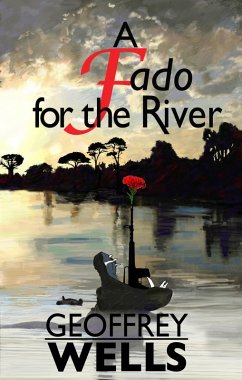When they fell in love, all three warring factions wanted her secret-or her life. They thought they would share a life after Raf faked her death and they'd crossed the border, but their ideas of freedom tore them apart.
Years have slipped by, and now he's an American executive with a blackmail note. Facing ruin, he must prove he did not murder her when he was a student on vacation in Mozambique-on the edge of chaos. As the Portuguese revolution raged, he helped her flee the colony and never saw her again. Both had committed to spying for the freedom fighters, but they both refused to blow each other's cover.
Now in Lisbon, a fado singer reveals his precious secret: he has never stopped loving her. He must find her.
Destiny provides a nostalgic refrain in this story, as the fado does in the Portuguese songbook. The narrative floats between the past and the present in the way a dream might slip in and out of reality. The setting is the ancient Limpopo River that has always been blind to itinerant traitors-the Europeans, Christian slave traders, Communists, Muslims, criminals, freedom fighters and terrorists, who have crossed its fated banks. The river holds the promise of Raf's tale. Can it lead him down to the ocean to liberate him from the banks of his emotional apathy?
This is the first book of The Trilogy for Freedom: It is a lyrical, embracing international tale, part romantic suspense, part political thriller. In this story of treachery and deceptive alliances, Geoffrey Wells captures the heartbreak of lost love and Raf's hope of freedom-if he gets a second chance with his first and only love.
Brace yourself for stories from the heart of forgotten places.
Start reading the trilogy today.
Years have slipped by, and now he's an American executive with a blackmail note. Facing ruin, he must prove he did not murder her when he was a student on vacation in Mozambique-on the edge of chaos. As the Portuguese revolution raged, he helped her flee the colony and never saw her again. Both had committed to spying for the freedom fighters, but they both refused to blow each other's cover.
Now in Lisbon, a fado singer reveals his precious secret: he has never stopped loving her. He must find her.
Destiny provides a nostalgic refrain in this story, as the fado does in the Portuguese songbook. The narrative floats between the past and the present in the way a dream might slip in and out of reality. The setting is the ancient Limpopo River that has always been blind to itinerant traitors-the Europeans, Christian slave traders, Communists, Muslims, criminals, freedom fighters and terrorists, who have crossed its fated banks. The river holds the promise of Raf's tale. Can it lead him down to the ocean to liberate him from the banks of his emotional apathy?
This is the first book of The Trilogy for Freedom: It is a lyrical, embracing international tale, part romantic suspense, part political thriller. In this story of treachery and deceptive alliances, Geoffrey Wells captures the heartbreak of lost love and Raf's hope of freedom-if he gets a second chance with his first and only love.
Brace yourself for stories from the heart of forgotten places.
Start reading the trilogy today.
Dieser Download kann aus rechtlichen Gründen nur mit Rechnungsadresse in A, B, BG, CY, CZ, D, DK, EW, E, FIN, F, GR, HR, H, IRL, I, LT, L, LR, M, NL, PL, P, R, S, SLO, SK ausgeliefert werden.









